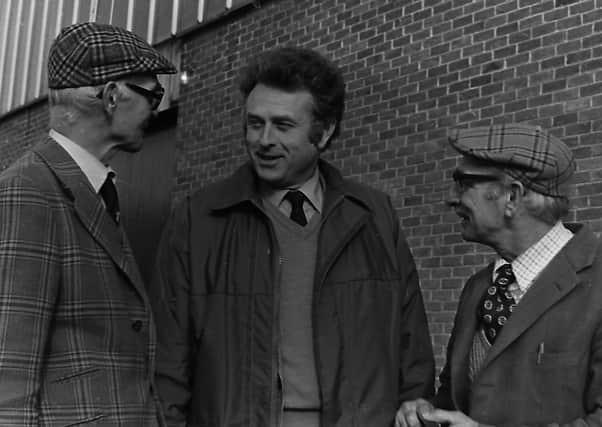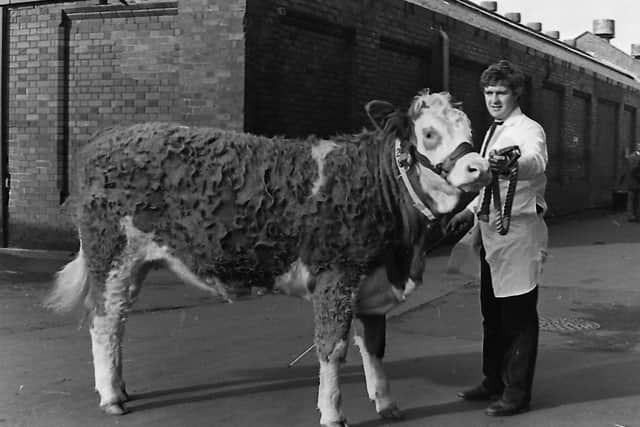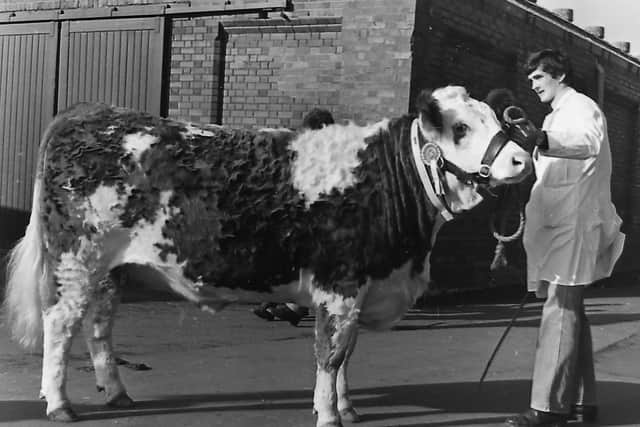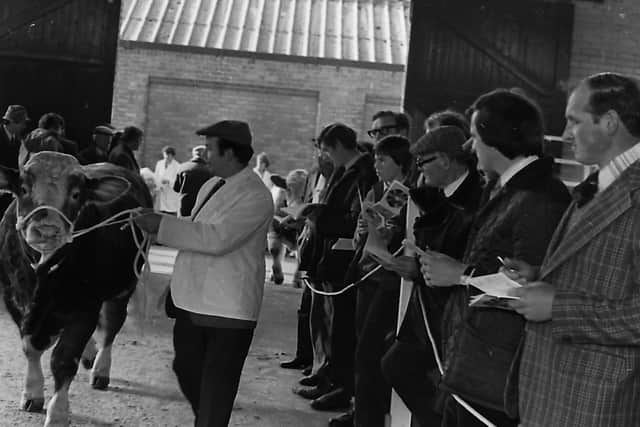BYGONE DAYS: A deepening crisis looms over how to dispose of fallen stock


And the lack of facilities for the disposal of dead animals was to be the subject of a debate at Dungannon District Council’s monthly meeting.
A notice of motion by Councillor James Ewing was to be tabled at the meeting. It called for the government to take “effective and immediate steps” to provide facilities for the disposal of dead animals.
Advertisement
Hide AdAdvertisement
Hide AdThe motion read: “Dungannon District Council is extremely concerned at the deepening crisis facing the farming community with respect of the disposal of dead animals and the implications which this ongoing situation is likely to have for both human and animal health.


‘CANNOT SIMPLY WASH THEIR HANDS OF SITUATION’
“The council are dismayed with government reactions that this is a problem solely for the farming community to resolve. Their legislative controls on the spread of BSE have been largely responsible for the removal of the vital dead animal collection service and they simply cannot wash their hands of the present situation.”
The motion added: “The threat to animal health is obvious, but we are more alarmed that some of these animals could easily find their way into the human food chain.
“The council therefore call upon government to either provide a facility where dead animals can be processed or make incentives available to the two animal by-product manufacturers in order that the collection service can be restored and further damage to the environment and the farming community averted.”
Advertisement
Hide AdAdvertisement
Hide Ad

Councillor Ewing, who was a dairy farmer, told Farming Life: “It is unrealistic to expect farmers to deal with this crisis. Government just cannot walk from a problem which they themselves are responsible for creating.
“It is patently obvious that no thought whatsoever has been given to this matter, which will shortly develop into a serious crisis.”
He said that farmers did not have the facilities to deal with fallen animals. He added that very few farmers had machines for digging and local contractors would not get involved in that type of work.
He asked: “How are those who are in intensive pig rearing expected to cope where a number of animals daily have to be disposed of?”
Advertisement
Hide AdAdvertisement
Hide Ad

He continued: “Already carcasses of fallen animals have been found in rivers, ditches, council skips and landfill sites. This is but the beginning and, if the situation is permitted to deteriorate, then undoubtedly worse is to come.”
ADDING INSULT TO INJURY
Councillor Ewing said that it was very important that these animals were removed from farms and properly disposed of, because of the health danger to other animals on the farm, and, more importantly, the danger to human health.
“Up to the present, an adequate facility had been provided by two by-product manufacturers but, because of government restrictions, they now find they can no longer provide this facility.
“For government to expect farmers to pay for the disposal of these animals is to add insult to injury as the loss of the animal itself is already a severe blow.
Advertisement
Hide AdAdvertisement
Hide Ad“To suggest district councils should provide facilities is unrealistic. Already there are difficulties in providing landfill sites for domestic waste, not to mention sites for the disposal of fallen animals.
“Where does government envisage these sites would be, bearing in mind the already rigid planning policy for any development in the countryside?
“The gate is left open for unscrupulous profiteers who may offer to remove these animals free to charge and the end result it that it ends up in the human food chain.”
Councillor Ewing said there was no alternative to providing a proper facility for the disposal of fallen animals.
UFU PRESIDENT CONDEMNS ILLEGAL DUMPING
Advertisement
Hide AdAdvertisement
Hide AdUlster Farmers’ Union president John Warden also raised the matter of the disposal of fallen animals in his report to the meeting of the UFU Executive Committee which had met in Belfast.
Mr Warden said: “Since the last meeting, the union has been heavily involved in attempts to solve the industry problems arising from the decisions taken by the main renderers to cease collection of fallen animals.
“While everyone recognises the difficulties faced by the farmers in this matter, the action of a small proportion of farmers in irresponsible dumping can only be deplored, as it is bringing the name of the industry into public disrepute.
“We believe government has responsibility to find a solution, since it was action by government in the first place which created the situation.”
Mr Warden concluded: “We are continuing our pressure on the Department of Agriculture to come up with a meaningful alternative to burial on the farm.”
Comment Guidelines
National World encourages reader discussion on our stories. User feedback, insights and back-and-forth exchanges add a rich layer of context to reporting. Please review our Community Guidelines before commenting.